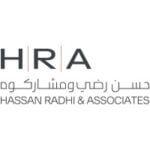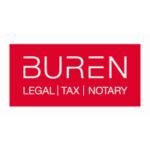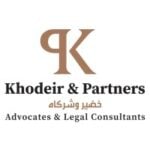-
What are the most common types of corporate business entity and what are the main structural differences between them?
Companies may be organized as capital companies, like the limited liability company (Gesellschaft mit beschränkter Haftung, GmbH), the stock corporation (Aktiengesellschaft, AG), the European stock corporation (Societas Europaea, SE) and, the partnership limited by shares (Kommanditgesellschaft auf Aktien) or as partnerships. Capital companies in the form of an AG, SE and GmbH are most common and will thus be focused on in the answers below. As the SE in its most prevalent form is treated like an AG, we will only address the SE separately in case of differences. The main structural differences are in the corporate governance structures and the corresponding rights of the shareholders. Whereas an AG and some SEs follow the two-tier system with management board (Vorstand), which manages and represents the company, and supervisory board (Aufsichtsrat), which supervises the management board, and the general meeting of shareholders having correspondingly rather limited rights and influence on the management of the company, the SE may alternatively feature a one-tier corporate governance system with an administrative board (Verwaltungsrat) and managing directors (Geschäftsführende Direktoren) and the same limited rights of the shareholders. However, such monistic SEs are rather rare in Germany. Contrary, a GmbH is managed by managing directors (Geschäftsführer) and only has a supervisory board in case of so-called co-determination (Mitbestimmung). In a GmbH, shareholders have more rights, in particular the right to instruct the managing directors via shareholders’ resolution (aside from ordinary or extra-ordinary shareholders’ meetings and resolutions that can be passed in writing).
-
What are the current key topical legal issues, developments, trends and challenges in corporate governance in this jurisdiction?
The EU Listing Act, which was passed in October 2024, introduces several changes to capital market law. Inter alia, these include amendments to the Market Abuse Regulation (e.g. changes to ad hoc disclosure of insider information by listed companies during intermediate steps in a protracted process) and the EU Prospectus Regulation.
The topic of sustainability and social and environmental responsibility has become increasingly significant, resulting in more specific legislation on this matter both at national and EU level. Inter alia, the Corporate Sustainability Reporting Directive (CSRD) became effective in January 2023. The CSRD aims to expand the reporting requirements to include additional information on ESG issues. By 6 July 2024, the directive should have been implemented into national law. However, the CSRD has not yet been adopted in Germany and the legislative process of the implementation is still ongoing.
Furthermore, the supply chain act, which implements the UN Guiding Principles on Business and Human Rights, came into force on 1 January 2023 for companies with at least 3,000 employees. Since 1 January 2024, it also applies to companies with at least 1,000 employees. Among other things, the Act requires companies to publish an annual report on their fulfilment of their obligations under the Supply Chain Act, such as the establishment of an appropriate risk-management system. However, the supervisory authority responsible for the supply chain act has announced that it will only monitor the reporting obligation from 1 January 2026. This will not affect the other due diligence obligations. These are already monitored and sanctioned if necessary.
-
Who are the key persons involved in the management of each type of entity?
In a two-tier system of an AG and corresponding in dualistic SEs, key persons are the members of the management board and of the supervisory board. In a one-tier system SE these are the members of the administrative board and the managing directors. The latter can at the same time be members of the administrative board, unless their total number is less than the total number of non-executive board members. In a GmbH key persons are the managing directors and the shareholders. Only in case of co-determination, a supervisory board and its members become relevant.
-
How are responsibility and management power divided between the entity’s management and its economic owners? How are decisions or approvals of the owners made or given (e.g. at a meeting or in writing)?
Day-to-day management is executed by the management board in a two-tier system and by the managing directors in an SE with a one-tier system and a GmbH. Managing directors of a GmbH are however subject to instructions of the shareholders, which may influence the company’s management and also day-to-day management. Managing directors of a one-tier SE are subject to instructions of the administrative board, which is responsible for the management of all material company matters (Oberleitung) and for the determination of guidelines for the SE’s business, being at the same time obliged to supervise the management, in particular the day-to-day management. Shareholders and economic owners of an AG and an SE as well as the supervisory board are not entitled to pass management decisions or influence them outside their particular statutory (supervising) rights. Shareholders of an AG and SE have to pass their resolutions in a meeting, which needed to a broad extent take place physically prior to the CoViD-pandemic. Based on new legislation that replaced the temporary pandemic legislation of March 2020, such meetings are allowed to take place virtually on the basis of a corresponding provision in the articles of association. Owners of a GmbH can pass their resolutions either in a meeting or in writing. According to new legislation, the meeting can also take place virtually on basis of a provision in the articles of association or in case all shareholders give their consent.
-
What are the principal sources of corporate governance requirements and practices? Are entities required to comply with a specific code of corporate governance?
Primary sources for corporate governance requirements are the German Stock Corporation Act for AGs and SEs (Aktiengesetz, AktG), the European and German acts on SEs (particularly the European SE-Regulation and the German SEAG), the German Limited Liability Companies Act (Gesetz betreffend die Gesellschaften mit beschränkter Haftung, GmbHG), the German Commercial Code (Handelsgesetzbuch, HGB) and, for certain aspects, the Reorganisation of Companies Act (Umwandlungsgesetz, UmwG), the German Securities Acquisition and Takeover Act (Wertpapiererwerbs- und Übernahmegesetz, WpÜG), the Securities Trade Act (Wertpapierhandelsgesetz, WpHG) as well as the Market Abuse Regulation (Marktmissbrauchsverordnung, MAR). The articles of association of the company and the rules of procedure for the management may impose further requirements. The German Corporate Governance Code (Deutscher Corporate Governance Kodex, DCGK) is an additional, non-binding source of corporate governance rules for listed companies (AGs, SEs, KGaAs).
-
How is the board or other governing body constituted? Does the entity have more than one? How is responsibility for day-to-day management or oversight allocated?
The management board in a two-tier system consists of one or more members; the same applies to the potential number of managing directors in an SE with a one-tier system and a GmbH, each unless the articles of association provide otherwise. The supervisory board has to consist of at least three members and up to 21 members, depending on the registered share capital of the corporation. In case of co-determination the number must be devisable by three. If parity co-determination is applicable, the minimum number of supervisory board members is 12 and beyond this depends on the total number of German employees. The administrative board of a one-tier SE can consist of one or more members, subject to the amount of the registered share capital. As regards day-to-day management and oversight, please also refer to no. 4 above.
-
How are the members of the board appointed and removed? What influence do the entity’s owners have over this?
In an AG and an SE, members of the management are appointed and dismissed by the supervisory board and, in case of a one-tier SE, the administrative board. Members of the supervisory and administrative board are appointed by the general meeting. Dismissal requires a resolution of the general meeting with a majority of in principle at least 75% of the votes cast. However, depending on the size of the company, a certain number of members of the supervisory board must be elected by the employees of the company, i.e. co-determination (Mitbestimmung). In an AG or GmbH with generally more than 500 German employees, one-third of the supervisory board members must be employee representatives, i.e. the one third participation (Drittelbeteiligung), and with more than 2,000 German employees, the supervisory board must consist of 50% employee representatives, i.e. the parity co-determination (paritätische Mitbestimmung). German co-determination rules do not apply to the SE. When incorporating an SE by one way of the ‘numerus clausus’ of incorporation, an agreement on the participation of the employees has to be negotiated with a so-called special negotiating body representing the employees. Thereby, the level of co-determination of the German company legally required prior to the implementation of the SE shall be maintained (freeze of co-determination). Managing directors in a GmbH are appointed and dismissed by the shareholders’ meeting with simple majority in general.
-
Who typically serves on the board? Are there requirements that govern board composition or impose qualifications for board members regarding independence, diversity, tenure or succession?
Members of the management board must fulfil basic statutory requirements regarding personal reliability, e.g. no criminal record. There is no minimum number of members of the management board (also, see no. 6 above). The maximum term of office is five years (six years in a SE); a reappointment is permitted. It may not be renewed or extended until one year before the end of the term. In companies listed and co-determined on a parity basis, 30% of the supervisory board members need to be women and men, and there needs to be at least one woman and one man on management boards with three or more members. In companies listed or co-determined, the supervisory board must determine and annually report on a target percentage for women on the supervisory board as well as on the management board; in case of a set target of zero, this needs to be justified in a clear and comprehensible manner. Also, the management board needs to set targets for the second/third line management.
The DCGK makes several further recommendations regarding diversity of the management and supervisory board and the tenure of its members. As regards composition of the supervisory and administrative board, please also refer to no. 6 above. In a listed company, at least one expert in auditing and one expert in accounting have to be on the supervisory board. The DCGK additionally makes several recommendations regarding the composition of the supervisory board (e.g. expertise in sustainability issues) as well as the independence of its members. Other rules apply to managing directors of a GmbH and the members of the management board of non-listed AGs or SEs. The GmbHG does not limit the tenure of managing directors but limited terms of office are common practice.
-
What is the role of the board with respect to setting and changing strategy?
The supervisory board in a two-tier AG/SE is not entitled to set and/or change strategy. This entitlement is solely with the management board in its absolute free discretion. Differently, the administrative board of a one-tier SE is entitled to set and change such strategy and the managing directors are obliged to implement, if necessary, based on instructions from the administrative board.
-
How are members of the board compensated? Is their remuneration regulated in any way?
The remuneration of the members of the management board is agreed upon in the service contract between the respective member and the company, represented by the supervisory board. For listed companies, the supervisory board has to develop a remuneration policy determining the principles of the remuneration. It will typically provide for a mix of fixed remuneration and variable remuneration, the latter divided between short-term and long-term incentives with emphasis on share-based remuneration aiming towards the sustainable and long-term development of the company. The remuneration policy must be clear and understandable, set a maximum remuneration and include detailed information on different aspects of the remuneration. The general meeting must vote on the policy at least every four years. While being non-binding, a shareholder vote rejecting the policy triggers an obligation to amend the policy and to present it again at next year’s general meeting. Further, a yearly remuneration report must be prepared and voted upon by the general meeting. Both documents must be published on the company’s website. Members of the supervisory board receive a cash remuneration either specified in the articles of association or resolved upon by the general meeting and taking into consideration the status as chair or deputy chair of the supervisory board and of potential committees. In listed companies, it must be included in the remuneration report. The DCGK suggests a fix cash remuneration. The remuneration of managing directors of a GmbH is not subject to regulation. Nevertheless, the respective service contract between the managing director and the company (represented by the shareholders’ meeting) will commonly provide a mix of fixed and variable remuneration.
-
Do members of the board owe any fiduciary or special duties and, if so, to whom? What are the potential consequences of breaching any such duties?
Members of the management owe a fiduciary duty to the company and must manage its affairs with the due care of a prudent and diligent businessman, particularly in accordance with the applicable laws and the articles of association. In case of entrepreneurial decisions, the aforementioned standard is met if the respective member could reasonably assume to have gained sufficient information before making the decision, is not conflicted and considers to be acting in the company’s best interests (business judgement rule). The same applies mutatis mutandis to the members of the supervisory or the administrative board. While members of both boards and managing directors must act in the company’s best interests, this includes the interests of its stakeholders (e.g. creditors and employees).
-
Are indemnities and/or insurance permitted to cover board members’ potential personal liability? If permitted, are such protections typical or rare?
The members of the management and supervisory board are personally liable for a culpable breach of duty. The members of the respective board are jointly and severally liable vis-à-vis the company. Thus, individual members may not alleviate themselves from liability because a certain responsibility was delegated to a different member internally. Furthermore, liability is not affected if the members of the respective board have been discharged by the general meeting. Therefore, D&O insurance for the members of both boards is common practice in order to protect them against personal liability. Premiums are generally paid by the company, however, members of the management board must bear a statutory deductible. In case of a GmbH, the consequences of a breach of the duties of managing directors are, to great extent, comparable to an AG. However, if the shareholders’ meeting has discharged the managing director knowing the facts underlying such breach, such discharge leads to an exclusion of liability.
-
How (and by whom) are board members typically overseen and evaluated?
The members of the management board are overseen by the supervisory board (see above no. 1 and 4), primarily by way of approval rights of the supervisory board. They are evaluated by the supervisory board based on the performance indicators and targets set and agreed upon in the variable remuneration components and/or the remuneration policy. The same applies to managing directors of a one-tier SE in relation to the administrative board. The shareholders’ meeting of a GmbH oversees the managing directors, in particular through approval rights and its right to issue instructions.
-
Is the board required to engage actively with the entity’s economic owners? If so, how does it do this and report on its actions?
Apart from the communication in the course of the company’s disclosures (see below no. 16), communication primarily takes place in the course of the (annual) general meeting. In addition, the management board may engage in communications with its investors but in doing so must treat all shareholders equally and may not disclose business secrets or insider information. For this reason, the management board will abstain from providing investors with any information that has not already been disclosed or that is not intended for disclosure to all other shareholders. The DCGK suggests that the chairman of the supervisory board shall be prepared to engage in investor relations communication on topics related to the supervisory board. In contrast, shareholders of a GmbH may at any time demand information on company matters and access to the company records from the managing directors.
-
Are dual-class and multi-class capital structures permitted? If so, how common are they?
Both such capital structures are permitted, but the exception. In practice, dual-classes of shares are implemented in either the articles of association or in a shareholders’ agreement, if shareholders shall be entitled to disproportionate dividend and liquidation proceeds’, e.g. due to financing rounds; waterfall. The most common dual-class structure is a combination of ordinary shares and non-voting preference shares.
-
What financial and non-financial information must an entity disclose to the public? How does it do this?
Basic information on all capital companies is available to the public through the commercial register (e.g. members of the management board, share capital). All capital companies must prepare and, if applicable, publish their audited annual reports. The same applies to group financial statements. Listed companies (AGs, SEs and KGaAs) must also prepare and publish half-yearly financial statements and management reports. Group financial statements of listed companies must be prepared in accordance with IFRS. Listed companies must publish all notifications on voting rights and on future voting rights based on derivatives they receive from their shareholders, exceeding or falling below the thresholds of 3%, 5%, 10%, 15%, 20%, 25%, 30%, 50% or 75%. They must also publish the total number of voting rights in case of any changes. Listed companies must announce any insider information without undue delay by way of a so-called ad hoc notification. In this context, it should be noted that the changes to ad hoc notifications referred to under no.2 above will only apply after a transitional period, which will last until June 2026. In AGs and SEs, another important channel of information are the invitations to the general meeting, especially the annual general meeting. Lastly, a listed company must state whether or not the recommendations of the DCGK were followed in the respective financial year and must explain any noncompliance on the website and in the report on corporate governance in the management report (‘comply or explain’).
-
Can an entity’s economic owners propose matters for a vote or call a special meeting? If so, what is the procedure?
Shareholders of an AG or SE whose combined share in the share capital is 5% or higher or corresponds to a nominal stake of EUR 500,000 may demand to convene a general meeting or that certain additional items are put on the agenda. Regarding a GmbH, the respective threshold is a combined share in the share capital of 10% or higher.
-
What rights do investors have to take enforcement action against an entity and/or the members of its board?
Investors can assert claims against the entity. However, in an AG and SE (with a few exceptions in special statutory rules – e.g., in the event of an insolvency, and in the context of wilful misconduct), they cannot enforce a breach of duties of members of management and supervising bodies. The members of the bodies are rather jointly and severally liable in the internal relationship towards the company due to their joint responsibility. Thus, individual members of a management and supervising body may not alleviate themselves from liability because a certain task or responsibility was delegated to a different member internally. Furthermore, such breach may lead to a dismissal and, with respect to the management board members, a termination of their service contract. In principle, the supervisory board is responsible and – according to case law – even has a duty to assert damage claims to the management board members. The company may waive its damage claims or enter into settlement arrangements on these claims only if three years have lapsed since the claim arose and the general meeting resolved thereupon without a minority of the shareholders (at least 10% of the share capital) raising an objection. In the event that members of the supervisory board culpably breach their duties, the management board is responsible to pursue possible damage claims against the supervisory board members jointly and severally. The rights and obligations on asserting claims against members of corporate governance bodies in an AG, SE and KGaA are independent of whether or not the members of these respective bodies have been discharged. Another particular consequence of a breach of duty in a listed company is that the company may be obliged to disclose it to the capital market by way of ad hoc notification. In case of a GmbH, the consequences of a breach of the duties of managing directors are, to a great extent, comparable to the ones in an AG. In general, the managing directors, like the management board members, are not directly liable to the creditors of the company. However, the shareholders’ meeting has the right to pursue damage claims and to decide about the dismissal of managing directors and the termination of the service contract. In contrast to the situation in the AG, if the shareholders’ meeting has discharged the managing director knowing the facts underlying such breach, such discharge leads to an exclusion of liability (see above no. 12).
-
Is shareholder activism common? If so, what are the recent trends? How can shareholders exert influence on a corporate entity’s management?
Shareholder activism was limited through changes to the legal framework in the first decade of the century but continues to play a role in Germany. Activist shareholders are increasingly including smaller and lesser known companies in their activities. Especially small- and mid-cap companies are not yet well prepared for such interactions. Activist shareholders today usually acquire minority stakes and will then approach the management with certain demands. If such demands are not met, they will escalate the situation, e.g. by launching public campaigns. They may also exercise their shareholder rights to increase pressure on the management, e.g. through questions in the shareholder meeting, requesting special audits in the general meeting to unearth violations of the law or placing a member on the supervisory board.
-
Are shareholder meetings required to be held annually, or at any other specified time? What information needs to be presented at a shareholder meeting?
An annual general meeting is mandatory in an AG within the first eight months of a financial year (first six months in a SE). The annual meeting has to resolve upon the ordinary topics which contain the appropriation of profits, the appointment of the auditor and the formal discharge of the members of both boards and upon extraordinary topics as they occur. Generally, the management board may convene extraordinary general meetings in urgent cases. Apart from a customary management presentation, a report by the supervisory board and information presented in response to questions by shareholders, the AktG requires additional information being given in certain circumstances. For example, the management board has to provide a report in case of a capital increase with the exclusion of the subscription rights of existing shareholders. There is no timeframe for the annual shareholders’ meeting in a GmbH.
-
Are there any organisations that provide voting recommendations, or otherwise advise or influence investors on whether and how to vote (whether generally in the market or with respect to a particular entity)?
Proxy advisors as well as shareholders’ associations for German retail investors provide voting recommendations and other advice (e.g. Institutional Shareholder Services and Glass Lewis). Implementing the Shareholder Rights Directive II, the AktG introduced several disclosure requirements for proxy advisors, e.g. an annual report with respect to the code of conduct followed by the proxy advisor in making its decision, if any. The topic of sustainability and social responsibility is becoming increasingly significant. In this context, voting guidelines include various ESG (Environment, Social, Governance) criteria. Accordingly, violations of ESG criteria, such as oversight failures with regard to environmental or social matters, may constitute grounds for rejection for supervisory board candidates. In particular, these ESG criteria are to be considered in resolutions on the remuneration of the management board. Moreover, a recommendation for a resolution against the discharge of the management board or the supervisory board can be based on deficiencies in a sustainable corporate strategy.
-
What role do other stakeholders, including debt-holders, employees and other workers, suppliers, customers, regulators, the government and communities typically play in the corporate governance of a corporate entity?
Employees play a considerable role through their representation on the supervisory board in case of co-determination (see above no. 6 and 7). Besides, employees can exert influence through ‘works councils’, which may be elected by the employees in companies with more than five employees or ‘economic committees’ generally established in companies with more than 100 employees. The influence of both institutions is referred to as operational co-determination giving employees various information and consultation rights mostly regarding working conditions and social issues. Debt holders, suppliers and customers generally do not play a direct role in the corporate governance of a company. However, contractual obligations, like approval rights and financial as well as operational covenants, as well as de facto influence may have similar effects; yet, factual management thereby is restricted by case law. Some companies may be subject to similar constraints vis-à-vis their customers.
-
How are the interests of non-shareholder stakeholders factored into the decisions of the governing body of a corporate entity?
The German ‘stakeholder model’ requires that members of both, management and supervisory board as well as managing directors, consider the interests of shareholders and stakeholders (see above no. 11).
-
What consideration is typically given to ESG issues by corporate entities? What are the key legal obligations with respect to ESG matters?
In terms of ESG matters, the implementation of the Supply Chain Act as of beginning of 2023 is actual in discussion (see above no. 2). The law stipulates that companies have duties of care with regard to human rights and the environment in their supply chains. For this purpose, companies must establish an appropriate risk-management-system, and in particular appoint an internal officer for monitoring this system. Companies must conduct a risk analysis for themselves as well as their suppliers. If violations of human rights or environmental obligations are identified, companies are obliged to remedy them. Companies must establish a procedure for filing complaints, which allows their employees to report human rights violations. Companies must publish an annual report on their compliance with their obligations under the Supply Chain Act (but see note under no. 2 above)
The DCGK outlines an additional, non-binding source of ESG-related rules and also takes several existing legal obligations into account. For example, it recommends to identify the ecologic and social effects of the business activities and to consider ESG issues in the corporate strategy.
Implementing the EU Directive 2014/95/EU, Germany introduced numerous reporting requirements for listed companies to improve transparency and sustainability commitment of companies. Larger capital companies with more than 500 employees have to include a declaration on non-financial aspects in the management report. It includes information on the company’s concepts regarding environmental, employee-related and social issues, human rights as well as actions against corruption and bribery and their implementation. The Directive 2014/95/EU will stepwise be updated by the CSRD, which came into force in the beginning of January 2023 at EU level but still needs to be implemented into national law (see above no. 2). Thus, not only many more companies will be in charge of reporting their sustainability data, but the reporting requirements will be extended as well.
As part of the EU Action Plan for Financing Sustainable Growth, the Sustainable Finance Disclosure Regulation (SFDR) establishes extensive transparency obligations in the integration of sustainability risks, the consideration of adverse sustainability impacts in their processes (e.g. investing and advising) and the provision of sustainability‐related information with respect to financial products. In particular, additional disclosure requirements apply if environmental or social characteristics are promoted in connection with financial products. The disclosures of the financial market participants and financial advisers must be made on the respective website as well as in pre-contractual information. In April 2022, “Regulatory Technical Standards” regarding the content, methodologies and presentation of the information to be disclosed under this Regulation have been adopted by the European Commission which has been applicable since January 2023.
-
What stewardship, disclosure and other responsibilities do investors have with regard to the corporate governance of an entity in which they are invested or their level of investment or interest in the entity?
Generally, each shareholder and each investor’s representative has the same rights and duties. Each share has the same voting power (however, double and multiple voting influence were reintroduced for AGs and SEs, see above no. 2). Thus, when appointing members of the supervisory or administrative board or the managing directors of a GmbH (see above no. 7), majority investment can pass on relevant stewardship. Shareholders of AGs and SEs have to disclose shareholdings of more than 25% and 50% to non-listed companies. Voting rights notifications for shareholders of listed companies are set out in no. 16 above. If investors are represented on a board, they are obliged, both, according to statutory law as well as the DCGK (see above no. 8), to disclose potential conflicts of interests in relation to certain measures to be resolved upon in the relevant board to the respective board (chair) for him or the board to decide upon the member’s abstentions. Also, to a certain extent, related party agreements would need to be disclosed. In listed companies, also director’s dealings notifications may need to be made, if investor’s representatives trade with own shares or with shares of the investor, statutorily allocated to the representative.
-
What are the current perspectives in this jurisdiction regarding short-term investment objectives in contrast with the promotion of sustainable longer-term value creation?
In Germany, neither applicable law nor case law provide for any such perspectives and differentiations.
Germany: Corporate Governance
This country-specific Q&A provides an overview of Corporate Governance laws and regulations applicable in Germany.
-
What are the most common types of corporate business entity and what are the main structural differences between them?
-
What are the current key topical legal issues, developments, trends and challenges in corporate governance in this jurisdiction?
-
Who are the key persons involved in the management of each type of entity?
-
How are responsibility and management power divided between the entity’s management and its economic owners? How are decisions or approvals of the owners made or given (e.g. at a meeting or in writing)?
-
What are the principal sources of corporate governance requirements and practices? Are entities required to comply with a specific code of corporate governance?
-
How is the board or other governing body constituted? Does the entity have more than one? How is responsibility for day-to-day management or oversight allocated?
-
How are the members of the board appointed and removed? What influence do the entity’s owners have over this?
-
Who typically serves on the board? Are there requirements that govern board composition or impose qualifications for board members regarding independence, diversity, tenure or succession?
-
What is the role of the board with respect to setting and changing strategy?
-
How are members of the board compensated? Is their remuneration regulated in any way?
-
Do members of the board owe any fiduciary or special duties and, if so, to whom? What are the potential consequences of breaching any such duties?
-
Are indemnities and/or insurance permitted to cover board members’ potential personal liability? If permitted, are such protections typical or rare?
-
How (and by whom) are board members typically overseen and evaluated?
-
Is the board required to engage actively with the entity’s economic owners? If so, how does it do this and report on its actions?
-
Are dual-class and multi-class capital structures permitted? If so, how common are they?
-
What financial and non-financial information must an entity disclose to the public? How does it do this?
-
Can an entity’s economic owners propose matters for a vote or call a special meeting? If so, what is the procedure?
-
What rights do investors have to take enforcement action against an entity and/or the members of its board?
-
Is shareholder activism common? If so, what are the recent trends? How can shareholders exert influence on a corporate entity’s management?
-
Are shareholder meetings required to be held annually, or at any other specified time? What information needs to be presented at a shareholder meeting?
-
Are there any organisations that provide voting recommendations, or otherwise advise or influence investors on whether and how to vote (whether generally in the market or with respect to a particular entity)?
-
What role do other stakeholders, including debt-holders, employees and other workers, suppliers, customers, regulators, the government and communities typically play in the corporate governance of a corporate entity?
-
How are the interests of non-shareholder stakeholders factored into the decisions of the governing body of a corporate entity?
-
What consideration is typically given to ESG issues by corporate entities? What are the key legal obligations with respect to ESG matters?
-
What stewardship, disclosure and other responsibilities do investors have with regard to the corporate governance of an entity in which they are invested or their level of investment or interest in the entity?
-
What are the current perspectives in this jurisdiction regarding short-term investment objectives in contrast with the promotion of sustainable longer-term value creation?





















